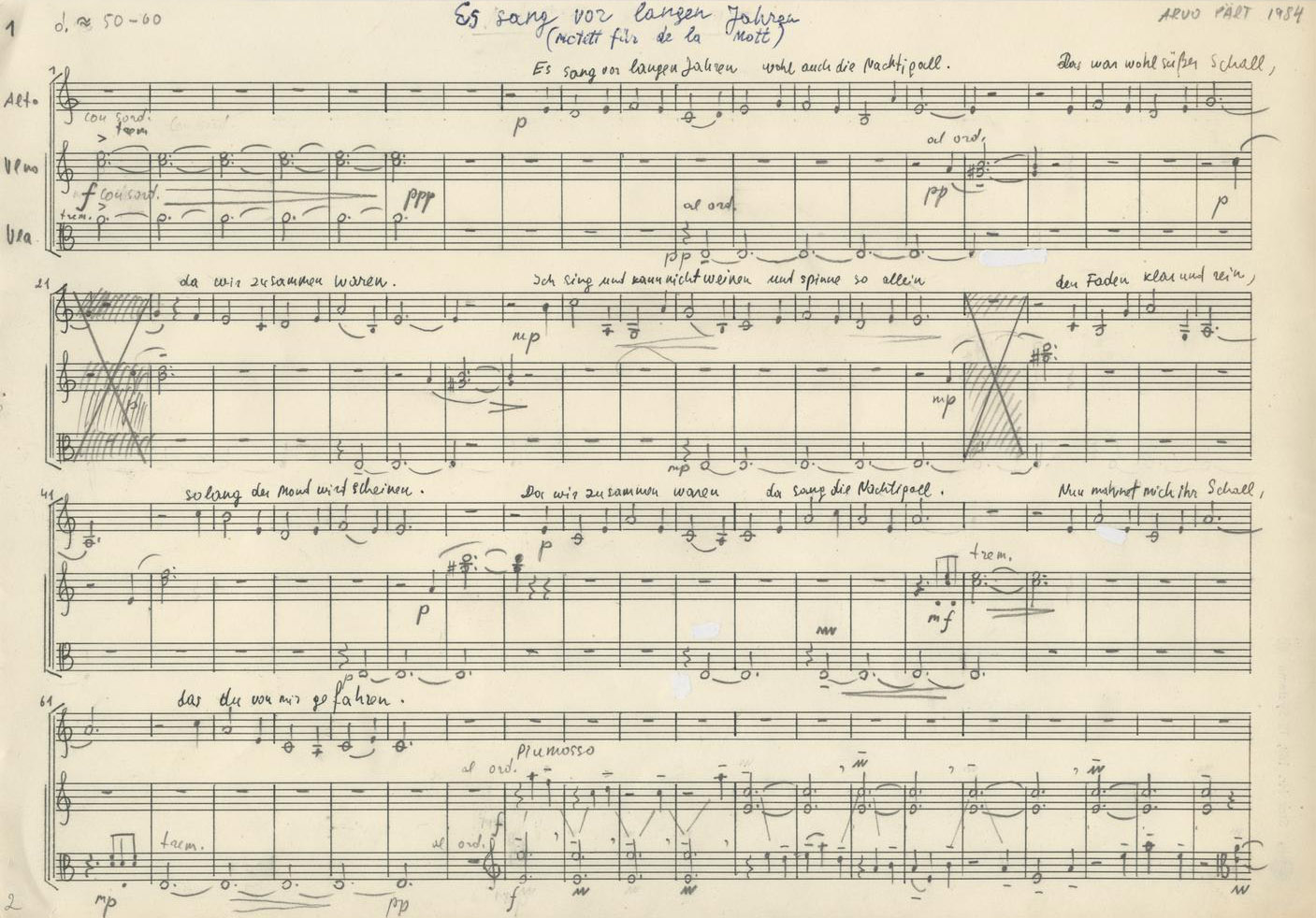Scored for
Duration
4 min
Short description
The small chamber music composition Es sang vor langen Jahren was completed in 1984, when Diether de la Motte, a German musicologist and radio producer had asked ten composers to set the poem Der Spinnerin Nachtlied by Clemens Brentano to music. Hence the dedication in the subtitle: Motette für de la Motte.
This is one of the few of Pärt’s tintinnabuli works that are not based on liturgical texts, but on a poem, more precisely, a love poem. The verses by Clemens Brentano (1778–1842), a major figure of German Romanticism, are centred around painful longing for his lost Loved One; the borders between earthly and divine love, as well as those between the present moment and memories are blurred as in a dream. This mystical nightsong (Nachtlied) has inspi…

Susan Bickley (alto), Gidon Kremer (violin), Vladimir Mendelssohn (viola). CD Arbos. ECM New Series 1325
© ECM Records
World premiere
Concert: Uraufführung der Musik von zehn Komponisten.
Andrea Gropp (alto), Markus Honegger (violin), Burghard Teichert (viola)
Completion year
Dedication
Scored for
Duration
Publishers
Language
Vocal text
Es sang vor langen Jahren
Wohl auch die Nachtigall.
Das war wohl süsser Schall,
Da wir zusammen waren.
Ich sing und kann nicht weinen
Und spinne so allein.
Den Faden klar und rein,
Solang der Mond wird scheinen.
Da wir zusammen waren,
Da sang die Nachtigall.
Nun mahnet mich ihr Schall,
Dass du von mir gefahren.
So oft der Mond mag scheinen,
So denk ich dein allein.
Mein Herz ist klar und rein,
Gott wolle uns vereinen.
Seit du von mir gefahren,
Singt stets die Nachtigall.
Ich denk bei ihrem Schall,
Wie wir zusammen waren.
Gott wolle uns vereinen.
Hier spinn ich so allein.
Der Mond scheint klar und rein.
Ich sing und möchte weinen.
Long years ago indeed, as now
There sang the nig…

